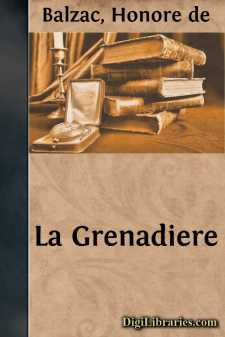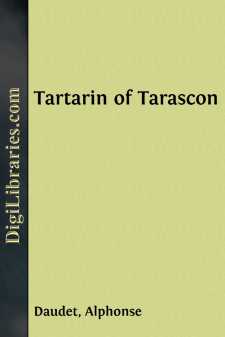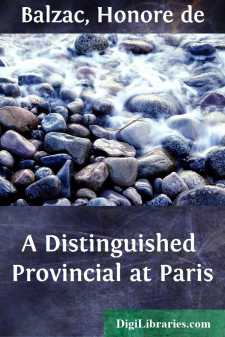Literary Collections
- American 84
- Ancient, Classical & Medieval 14
- Asian 1
- Australian & Oceanian 1
- Canadian 55
- Continental European
- English, Irish, Scottish, Welsh 179
- Essays 160
- General 24
- Letters 46
- Middle Eastern 1
Continental European Books
Sort by:
by:
Honore de Balzac
STUDY OF A WOMAN The Marquise de Listomere is one of those young women who have been brought up in the spirit of the Restoration. She has principles, she fasts, takes the sacrament, and goes to balls and operas very elegantly dressed; her confessor permits her to combine the mundane with sanctity. Always in conformity with the Church and with the world, she presents a living image of the present day,...
more...
by:
Voltaire
The 18th of the Month Scheval, in the Year of the Hegira, 837. Thou Joy of ev’ry Eye! Thou Torment of every Heart! Thou Intellectual Light! I do not kiss the Dust of thy Feet; because thou seldom art seen out of the Seraglio, and when thou art, thou walkest only on the Carpets of Iran, or on Beds of Roses. I here present you with a Translation of the Work of an ancient Sage, who having the Happiness...
more...
by:
Honore de Balzac
MELMOTH RECONCILED There is a special variety of human nature obtained in the Social Kingdom by a process analogous to that of the gardener's craft in the Vegetable Kingdom, to wit, by the forcing-house—a species of hybrid which can be raised neither from seed nor from slips. This product is known as the Cashier, an anthropomorphous growth, watered by religious doctrine, trained up in fear of...
more...
by:
Honore de Balzac
GAMBARA New Year's Day of 1831 was pouring out its packets of sugared almonds, four o'clock was striking, there was a mob in the Palais-Royal, and the eating-houses were beginning to fill. At this moment a coupe drew up at the perron and a young man stepped out; a man of haughty appearance, and no doubt a foreigner; otherwise he would not have displayed the aristocratic chasseur who attended...
more...
by:
Honore de Balzac
LA GRENADIERE La Grenadiere is a little house on the right bank of the Loire as you go down stream, about a mile below the bridge of Tours. At this point the river, broad as a lake, and covered with scattered green islands, flows between two lines of cliff, where country houses built uniformly of white stone stand among their gardens and vineyards. The finest fruit in the world ripens there with a...
more...
by:
Calvin Thomas
PREFACE This book is designed to accompany an introductory study of the history of German literature. It is assumed that the history itself will be learned, so far as necessary, either from lectures or from some other book devoted to the subject. As the selections were made, for the most part, while I was writing my own short history of German literature for the series published under the general...
more...
by:
Honore de Balzac
ALMAE SORORI In the year 1308 few houses were yet standing on the Island formed by the alluvium and sand deposited by the Seine above the Cite, behind the Church of Notre-Dame. The first man who was so bold as to build on this strand, then liable to frequent floods, was a constable of the watch of the City of Paris, who had been able to do some service to their Reverences the Chapter of the Cathedral;...
more...
by:
Alphonse Daudet
EPISODE THE FIRST, IN TARASCON I. The Garden Round the Giant Trees. MY first visit to Tartarin of Tarascon has remained a never-to-be-forgotten date in my life; although quite ten or a dozen years ago, I remember it better than yesterday. At that time the intrepid Tartarin lived in the third house on the left as the town begins, on the Avignon road. A pretty little villa in the local style, with a...
more...
by:
Ludwig Tieck
THE OLD MAN OF THE MOUNTAIN. The name of Herr Balthasar was well known throughout the whole hill-country: not a child but had heard of his vast riches, and had some story to tell of him. Everybody too loved and honoured him; for his bounty was as great as his wealth: but at the same time he was viewed with fear; for he harast both himself and others by a number of strange whims which no one could...
more...
by:
Honore de Balzac
PART I Mme. de Bargeton and Lucien de Rubempre had left Angouleme behind, and were traveling together upon the road to Paris. Not one of the party who made that journey alluded to it afterwards; but it may be believed that an infatuated youth who had looked forward to the delights of an elopement, must have found the continual presence of Gentil, the man-servant, and Albertine, the maid, not a little...
more...











